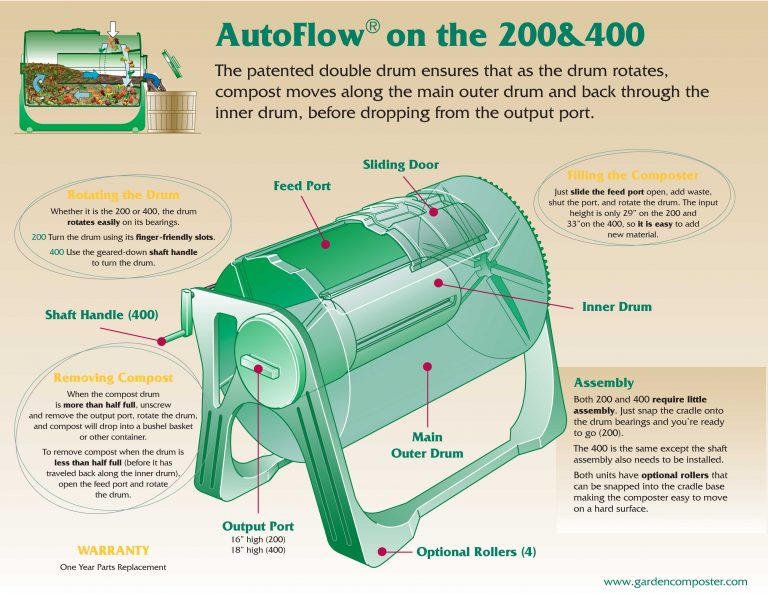If composting conditions are optimized, your kitchen/garden waste will decompose quickly and provide a constant supply of compost for your garden.
The key factors in optimizing the activity of aerobic bacteria are:
Aerobic bacteria grow and live in the presence of oxygen and are very efficient in breaking down waste. Your compost should be aerated in order to encourage aerobic bacterial growth. This is done by rotating the drum three complete revolutions once or twice per week.
For best results, your compost should always be damp. Too dry and decomposition will slow or cease. Too wet, and the free air space is eliminated and the aerobic bacteria lack the oxygen they need to survive. To maintain moisture, when adding kitchen/garden waste, add a container of water equal to the volume of the waste being added to the drum.
If large pieces of waste are added to the compost, the surface area available for the bacteria to work on is reduced, and composting will be much slower than if the waste if chopped into smaller pieces.
Almost all organic material will compost, but a good balance of two (2) parts carbon-rich materials (“browns”) to one (1) part nitrogen-rich waste (“greens”) will achieve faster results. Adding too much brown will slow the composting process, while adding too much green will cause the compost to smell. If there is odor, adjust the carbon/nitrogen balance and turn the drum more frequently.
Optimal composting temperatures range between 70-100 F°/21-38 C°. If the compost becomes too cold (below 55 F°/15 C°), decomposition will slow or stop completely.
If you are in an area where temperatures frequently reach above 100 °F/38°C, the composter should be located in a shaded spot to protect the barrel and frame from warping.
Other considerations
Bacteria are an important asset to your compost. To encourage good bacterial growth, we recommend Compost Swift be added once per week. Simply add one ounce (if in liquid form) or one tablespoon (if in powder form) of Compost Swift to one cup of water and pour into the drum.
You may notice that various other creatures like insects, fungi or worms may be calling your garden composter home. These creatures are beneficial to your compost and will help it break down quicker.

